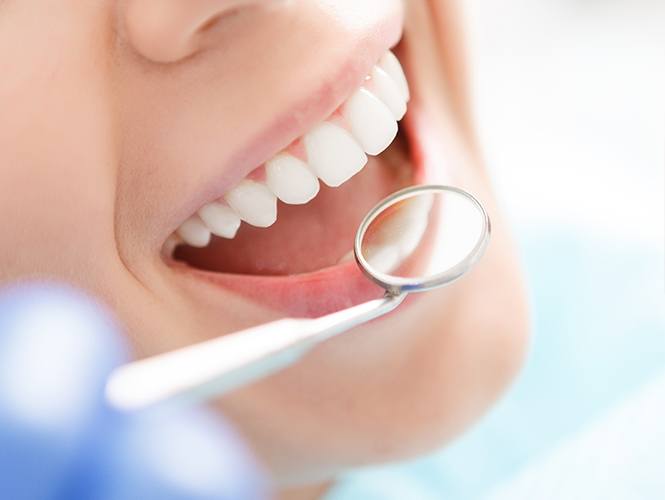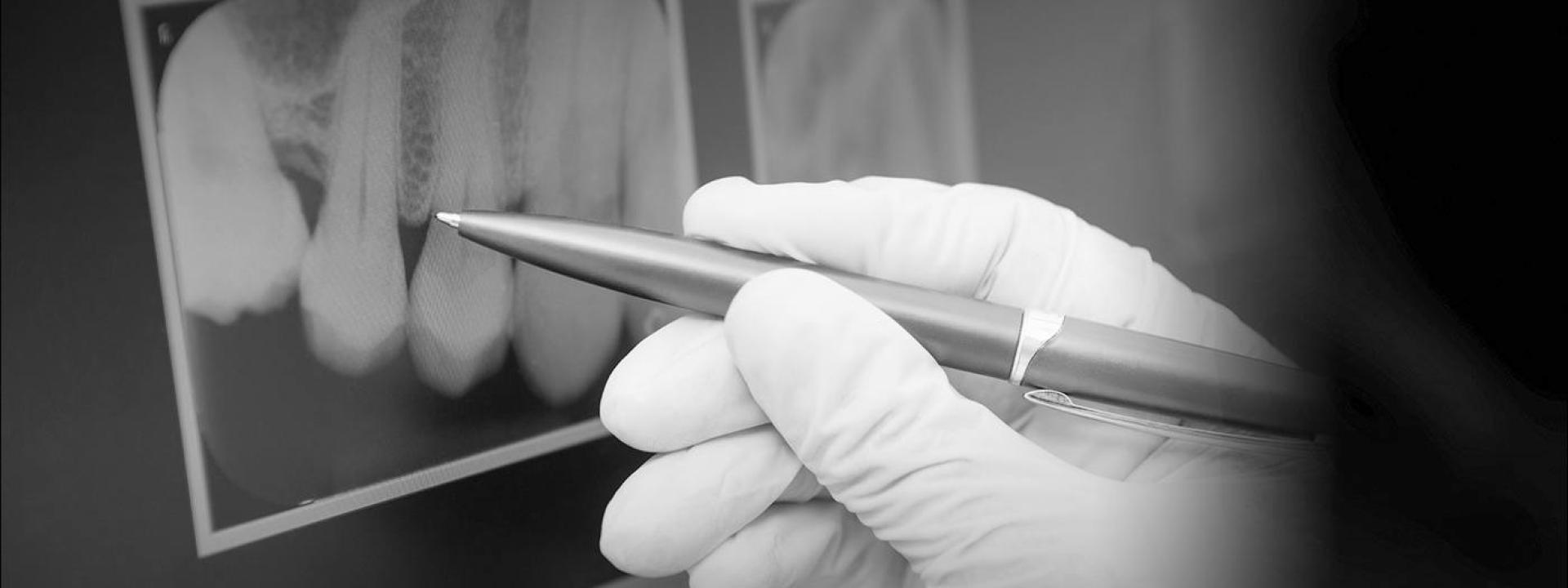Get Rid of Gum Disease for Good
Your teeth rely on your gums to stay firmly in place, so should they develop an infection like gum disease, this can have severe consequences for someone’s oral health. Swelling, redness, and bleeding are all early signs of gum disease, but worse problems like gum recession, chronic bad breath, and even tooth loss can develop without the proper treatment. Whether your gum disease is mild or advanced, Dr. Rasmussen can provide the specialty care you need to reclaim your oral health, stop any discomfort, and fully restore your smile’s appearance. To learn more and schedule an appointment for periodontal therapy in Tallahassee, FL, contact us today.
Why Choose Periodontics & Implant Dentistry of Tallahassee for Periodontal Therapy?
- Board-Certified Periodontist (Gum Specialist)
- Treatments Designed to Remove Infection at the Source
- Customer Service That Makes You Feel Valued

Periodontal Cleanings
While a dental cleaning is used to remove plaque and tartar from your teeth, a periodontal cleaning primarily focuses on doing the same for your gum line. This can help prevent the onset of gum disease, stop it from spreading around the mouth, and fix common issues like sensitivity and minor bleeding. Typically, a patient needs to have one completed every three to four months for it to effectively prevent infection.
Periodontal Diagnostics
There are many different types of oral bacteria, but only a few specific varieties lead to gum disease. Determining which kinds are in a patient’s mouth and how much there is can greatly influence the kind of treatment someone needs. Combining a visual exam with swabs taken from a patient’s mouth, our team can pinpoint the source of an infection, so we can address it in the most effective way possible. Plus, the presence of certain bacteria can be an indicator of other issues going on in the body, enabling a patient to seek out treatment at the initial signs of a problem.
Learn More About Periodontal Diagnostics

Scaling & Root Planing
The earliest stage of gum disease is called gingivitis, which is characterized by inflamed and sensitive gums. Typically, this is the result of plaque and tartar being allowed to accumulate on the teeth below the gum line, exposing the nearby tissues to harmful bacteria. Scaling and root planing, sometimes collectively referred to as a “deep cleaning,” is used to remove these deposits. Once the roots of the teeth have been thoroughly cleaned during the scaling portion, root planing involves slightly reshaping the roots of the teeth and smoothing their rough surfaces. This encourages faster healing and helps prevent plaque and tartar from building up near the gums in the future.
Osseous Surgery
Gum disease cannot only damage the soft tissues of the mouth but the jawbone underneath the gums as well. This can lead to a defect in the bone that creates a space where bacteria can easily gather, thrive, and cause more harm. Osseous surgery is a minor procedure in which the gum tissue is slightly pulled back so the nearby jawbone can be reshaped. This will enable it to provide better support for the teeth and gums, plus it will stop bacteria from accumulating.

Oral Cancer Screening
More than 50,000 people will be diagnosed with oral cancer this year alone, and less than half will be alive in the next five years because the disease wasn’t caught until it was quite advanced. Early detection and treatment are crucial, so whenever a patient comes to see us, we will always perform an oral cancer screening. If we find any signs of cancerous or precancerous tissues in the mouth, we can refer a patient to a medical doctor to get a proper diagnosis. This way, treatment can be started immediately if needed.
Periodontal Cleanings FAQs
If your periodontist in Tallahassee recommended a “deep cleaning,” don’t worry. They’ll explain everything during your consultation for gum disease treatment. In the meantime, here are the answers to a few frequently asked questions to ease any apprehensions.
Are deep cleanings painful?
Your periodontist takes patient comfort seriously during periodontal cleanings in Tallahassee. Although it isn’t always necessary, your periodontist may use a local numbing agent or anesthetics to avoid any discomfort. The likeliness of pain depends on the depths of the periodontal pockets. The deeper the pockets, the more likely you may experience some discomfort.
Can I use my dental insurance for periodontal cleanings?
Yes, many dental insurance plans offer coverage for periodontal cleanings. If the treatment is necessary to prevent or stop gum disease, you can use your benefits to lower the amount you’ll pay out-of-pocket. Although every plan differs, many dental policies list deep cleanings as a basic procedure. A member of our team will work on your behalf with your dental insurance to maximize your benefits to keep a healthy smile within your budget.
Will a deep cleaning treat bad breath?
Chronic bad breath is often caused by an overgrowth of bad oral bacteria. Periodontal disease causes an infection deep within the gum pockets, leading to a plethora of odor-causing bacteria. A deep cleaning removes bacteria and treats the infection to freshen your breath. With a solid oral hygiene routine at home, you can keep embarrassing odors at bay.
How often should I have a deep cleaning?
Depending on your needs, your periodontist may recommend more frequent cleanings and checkups. Typically, you should see your dentist at least every 6 months, but your periodontist may suggest having one every 3 months until your gum health is fully restored. Your periodontist will explain how often you’ll need a cleaning during your initial consultation.
How can I avoid needing a deep cleaning?
You can prevent gum disease and a deep cleaning by keeping your smile healthy at home. Commit to brushing your teeth at least twice daily, if not after every meal. Don’t forget to floss between each tooth before going to bed. Consider adding a mouthrinse to your oral hygiene routine to kill any bacteria left behind by your toothbrush and floss. Your periodontist will recommend a healthy diet that’s limited in sugars and starches. Schedule a cleaning and checkup with your periodontist at least every 6 months. If you notice any signs of gum disease between your regular appointments, don’t wait to contact our office.
How long does the recovery take?
It’s normal for your gums to be swollen or sore for a couple of days. You can manage any pain or tenderness with an OTC medication. Brush and floss carefully for the next few days to avoid injuring the healing tissue. Don’t smoke or drink alcohol to avoid potential complications, like an infection. Although everyone’s recovery differs, most feel back to normal in a couple of days.

